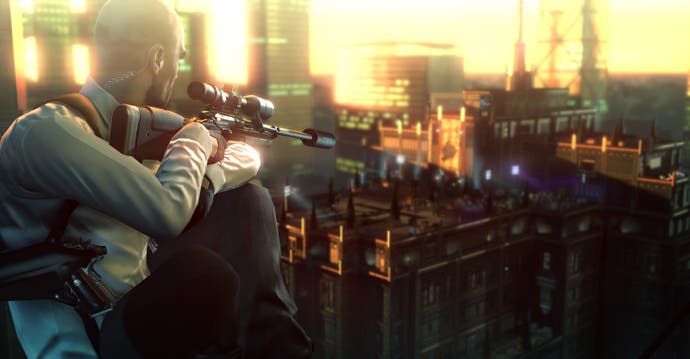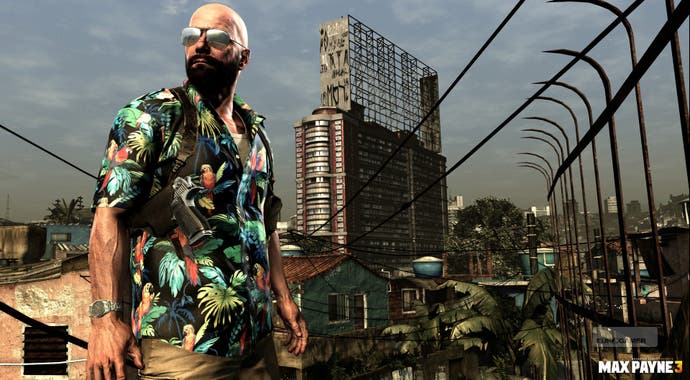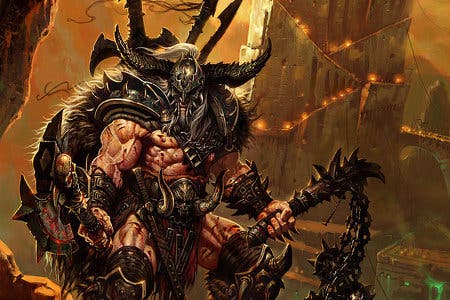Game of the Week: Diablo 3
Tempus fugitaboudit.
Remember when we had to wait, really wait, for a new game in a beloved series to come out? I barely do. These days, while we're happy (and, if you ask me, correct) to moan at the annual overexposure that progressively washes the fun out of hits like Assassin's Creed and Call of Duty, we also start looking pointedly at our watches when three years pass between BioShock games. It's become routine to assume that we'll get through three episodes of an Uncharted or a Gears of War in one hardware generation.
We're being spoiled, frankly, and so are the games. So it's been fun, this week, to reacquaint ourselves with a few older friends. But also a little troubling.
The youngest of the three is contract killer Agent 47, who makes a pre-emptive return after six years away in a micro-game called Hitman: Sniper Challenge. It's being doled out free with pre-orders for Hitman Absolution - but since you can cancel your pre-order at no cost and keep the game, it's more like a particularly imaginative demo that twists a single assassination mission into a toothsome and addictive score-attack game.

"It's immense fun," wrote Dan Whitehead. "What's interesting is that Sniper Challenge also acts as a refresher of sorts. This hit won't appear in Absolution, but it definitely trains the player to get back into an Agent 47 mindset.
"It's easy to complete the challenge, but incredibly difficult to finish to the professional standard you'd expect from Agent 47. Replays are vital, and as a welcome back to hardcore Hitman fans, it should offer reassurance that the unique flavour of the series hasn't been dumbed down for an audience now more used to wielding the blunt instruments of Marcus Fenix and pals."
Although a pre-order incentive is an ungainly vehicle for this kind of taster, Sniper Challenge is a novel and clever way to re-introduce a series that has slipped out of range of our deficient attention spans. And pre-empting a prodigal's return in this way is a smart move, because what would be an acceptable sabbatical for a Hollywood hero can seem like an age for the stars of our fast-changing medium.
Take Max Payne. You can't say that action games have changed beyond recognition since 2003's Max Payne 2, so perhaps it was an understandable mistake on Rockstar's part to assume that a coat of its dazzlingly thick gloss was all that was needed to bring the series back up to date after eight and a half years on the shelf. But a mistake it was - the game's storyline has all the cool cachet and bitter kick we've come to expect from Houser productions, but the action has none of the slick pacing and smooth modulation we've enjoyed in more recent blockbusters.

"All this polish can only sustain your enjoyment for so long when it's punctuated by such repetitive and increasingly frustrating combat," wrote Tom Bramwell in our Max Payne review. "We've learned to cope with the occasional balancing issue in a vast Grand Theft Auto game, but the difficulty spikes and checkpointing mistakes in Max Payne 3 betray Rockstar's lack of experience in pure third-person shooters.
"If anything's going to stop you trading in Max Payne 3, it's likely to be Max himself... You empty rooms together, then Max makes the empty rooms interesting with his tired, cynical, self-deprecating, cheesy and often drunken monologue. It all makes him hard not to like.
"Max the man emerges with credit from Max Payne 3, then, but time hasn't been kind to the ropier elements of the game he stars in."
As happy as we are to see a battered warhorse return to take the spotlight, rather than last year's model in a new wrapper, Max Payne 3 proves that resurrection without reinvention can be a dangerous game. Our game of the week, however, shows that too much reinvention can be just as likely to land you in hot water.
Diablo 3
Even Rockstar can't teach Blizzard anything about production values, but Blizzard could teach Rockstar - anyone, in fact - everything there is to know about polishing game mechanics. The Californian outfit is obsessive about it to the point of lunacy, and that's a big part of why there's been a hiatus of over a decade in the Diablo series' dark fantasy histrionics.
Diablo 3's superficially conservative, surreptitiously daring update to Diablo 2's rarely-bettered action RPG formula plays as fresh as the day is long.
It's also why Diablo 3's superficially conservative, surreptitiously daring update to Diablo 2's rarely-bettered action RPG formula plays as fresh as the day is long. You can read more about it in my review early in the coming week. (Blizzard doesn't grant press early access to its games, and I want to try tougher difficulty settings and all classes before offering our verdict; thanks for your patience.) Suffice to say that it's a blistering ride with a bracing new approach to how role-playing games can work.
But it isn't in the gameplay that Blizzard has really stuck its neck out. With the insistence on a permanent internet connection and embedded trading features proving vastly unpopular with fans, as well as creating a painfully unreliable service in launch week, Blizzard has made the opposite mistake to Rockstar's and jumped its ageing series too far into the future.
It seems as though, over the past 12 years, there's been a schismatic divergence between what Blizzard thinks a Diablo game is and what the series' fans expect of it. The always online requirement is absolutely a hard-headed business decision, but it's also a philosophy, a statement of intent from a company that - from the top down, and in its game design departments as well as its accounting ones - simply has no interest at all in making games that aren't connected. Blizzard's mavens were probably dreaming of this future when they launched Battle.net with the first Diablo all the way back in 1996, but they were too far-sighted by half, because sixteen years later we're still not ready for it - and neither is our internet infrastructure.
Tom and I differ on whether it's worth it. "We're being bullied into accepting a future where we don't actually want to buy the things that we're buying, because there is no other way to experience this phenomenal entertainment medium that we've all come to hold so dear unless we do so on terms that we find unacceptable," he said. "I'm not sure there's ever been an online game that was so easy to enjoy. The requirement for a permanent internet connection might seem a heavy price, but Blizzard has at least had the good grace to make that connection feel valuable, with fun features and peerless execution that genuinely enrich the game," I said.
We're still arguing about it, but in the cold light of day, we're both right. That a permanent connection is an unreasonable demand doesn't devalue the advantages of one, any more than those advantages actually justify it.
Growing pains. It's crazy that, in games, a mere decade can be a tough gap to bridge while keeping everybody on the same page. It's confusing, scary, even depressing sometimes. But hopefully we can remember that it's exciting, too, to be part of an entertainment medium that's still moving so fast.
And hopefully those growing pains won't detract or distract too long from the real Diablo 3, the game itself, which is a rip-roaring entertainment with its head screwed on and its heart wide open. I don't think they will - it's just too good. May your connections be stable and your caps unlimited in the days, weeks, months, years, decades ahead; you're going to need them.

